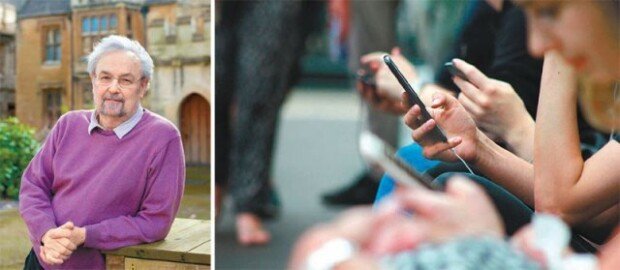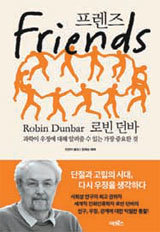Story of friendship as prerequisite for healthy life
Story of friendship as prerequisite for healthy life
Posted January. 08, 2022 08:00,
Updated January. 08, 2022 08:00


You may have more than a thousand followers on social media but how many of them would you want to have a sweet talk with even for a brief time when you bump into them at the airport? Professor Robin Dunbar at Oxford University, the author of this book, argues that you may say 150 friends or so at the most. He suggests Dunbar’s number (150 individuals) to explain a notion that people have a cognitive limit to the number of friends with which they can maintain a relationship. He has studied monkeys, small wildebeests and wild goats as an ethologist and immersed himself in the topic of human evolution in sociality as an evolutionary anthropologist for 25 years.
Based on his research on how humans and animals have evolved, Professor Dunbar questions a social act of human individuals – making friends. According to him, it takes money and resources to make friends but they make little difference in increasing likelihood of survival with no obvious financial returns guaranteed. To some sense, connecting with friends runs against the perspective that all animals including humans seek to build an optimized environment for reproduction and survival. Nevertheless, people depend emotionally on their friends spending their time and money. Professor Dunbar goes through a wide range of studies published across the globe for the recent two decades to ponder upon “friends and friendship,” which may sound like a less scientific topic. His research concludes that those successful in making friends are superior species to the rest in that they live a longer and healthier life.
Those with no friends around them feel a sense of solitude as if they were left alone on the planet. The author focuses on risks arising from such a deep sense of loneliness because it can lead not only to mental illnesses such as depression but also to physical conditions. Those overwhelmed by a sense of solitude fail to get their immune system upgraded even after vaccinated, according to a study shared by the author. Teenagers are more likely to have higher inflammation levels and gain more weight if they are less social. Senior citizens are prone to high blood pressure when they live alone. In summary, humans have tried to forge and maintain relationships to the fullest of their ability to prevent themselves from being fragile mentally and physically.
If it is the case, you may think that humans may lead a healthier life than before as the globe is more wired than ever before to make it an easy job to make friends online. However, the author gives you a no. It may be an economically efficient act to be friends by following others and liking their posts with only a few clicks but it does not ensure all benefits that your true friends and friendships may give you. Humans can feel a sense of friendship and relieve a feeling of loneliness from the bottom of their hearts only when they spend sufficient time and effort on maintaining relationships with sincerity. The author emphasizes the significance of physical meetups with friends if you want to keep your relationships because all digital media do in social networking is merely slow down the process of drifting apart gradually.
Ji-Hoon Lee easyhoon@donga.com




![하버드 의사가 실천하는 ‘뇌 노화 늦추는 6가지 습관’ [노화설계]](https://dimg.donga.com/c/138/175/90/1/wps/NEWS/IMAGE/2026/01/22/133210626.3.jpg)


